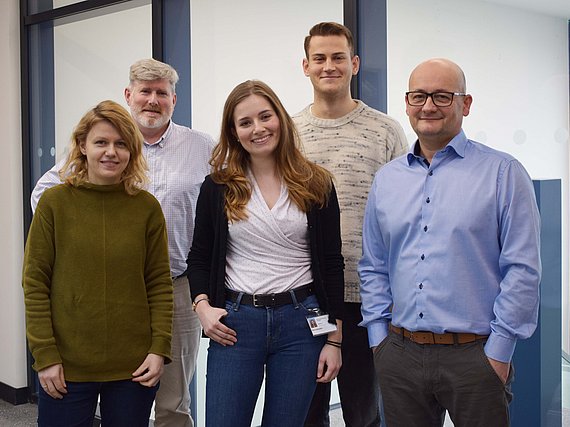The rate of chronic kidney disease (CKD) is continuously increasing worldwide. In general CKD causes high morbidity and mortality, therefore this disease has a very high socioeconomic impact. Importantly, more than 25% of patients with end stage renal disease (ESRD) have at least one first or second degree relative also suffering fromESRD. This figure illustrates the important role of genetics in CKD. Many of these patients and their nephrologists do not know the correct diagnosis. Furthermore, we expect that many genes of hereditary nephropathies have not yet been identified.
Our group is interested in such diseases and aims for a careful clinical characterization. We attempt to clarify the underlying cause of nephropathy in incident patients, as well as the pathogenesis of novel disease genes. For this purpose, we have a close clinical and scientific cooperation with the Institute for Human Genetics in Erlangen (Director Prof. Dr. André Reis). Our scientific spectrum and methodology stretches from molecular genetics to molecular biology and attempts to transfer these findings from cell culture to model organisms such as mouse and zebra fish. Examples of our recent research objectives are autosomal dominant tubulointerstitial kidney diseases, autosomal recessive (novel) ciliopathies and hereditary complement-associated glomerulopathies (C3G).
Kooperationen
- SFB 1350, Universität Regensburg
Arbeitsgruppenleiter
Wissenschaftliche Mitarbeitende
Wissenschaftliche Mitarbeitende
Wissenschaftliche Mitarbeitende
Technische Mitarbeitende
Karen Schneider








